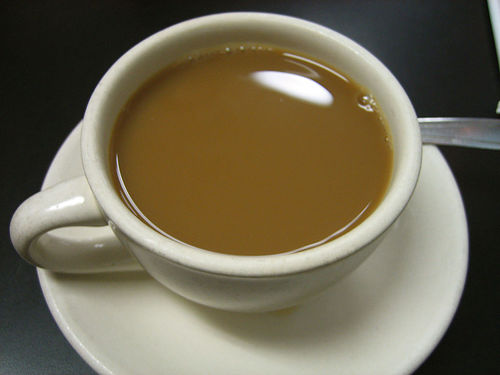An ongoing dialogue on HIV/AIDS, infectious diseases,
September 17th, 2011
Drinking Coffee Prevents MRSA
 I follow the medical literature on coffee very closely.
I follow the medical literature on coffee very closely.
Why? Because I’m completely addicted — and, judging from the lines at the Starbucks, Dunkin’ Donuts, etc at the airports before early morning flights, I am not alone.
(It’s just one cup a day. Any more and say hello to palpitations, jitters, sweats, and long sleepless nights. Is there ever such a thing as a short sleepless night?)
So I thank a former ID fellow for pointing out this key paper:
We performed a secondary analysis of data from the 2003–2004 National Health and Nutrition Examination Survey to investigate the relationship between the consumption of coffee, hot tea, cold tea, and soft drinks, and MRSA nasal carriage …Individuals who reported consuming coffee had about a one-half reduction in the risk of MRSA nasal carriage relative to individuals who drank no coffee (odds ratio = 0.47; 95% confidence interval, 0.24–0.93).
(Brits will take solace that drinking tea was similarly effective.)
And let the record show that despite various researchers trying to blame coffee for ulcers, high blood pressure, coronary artery disease, gout, birth defects, anxiety, and several cancers — most notoriously pancreatic cancer — the evidence that it causes any of these things is weak at best. In fact, the coffee/pancreatic cancer paper is taught in some statistics classes as an example of how poorly designed case-control studies can give misleading results.
So in defense of this one cup a day addiction, let’s bring on more articles on the health benefits of coffee.


I just saw and enjoyed your blog posting on coffee and MRSA, and your interest in further insights into the health benefits of coffee.
You may well be aware that one such potential scenario is hep C. There have been several recent analyses suggesting that coffee drinkers may have better HCV outcomes, include suggestions of better treatment efficacy, fewer AEs, and even reduced HCC mortality! Here are a few links; there’s clearly more out there too, based on a glance at the references list for the third one:
http://www.sciencedaily.com/releases/2011/06/110607105212.htm
http://www.aidsmeds.com/articles/hiv_hcv_coffee_1667_21137.shtml
http://www.nature.com/bjc/journal/v97/n3/full/6603891a.html
Usual caveats about observational analyses doubtless apply, but still, all further grist to the (coffee) mill!
E,
Thanks for the reminder about HCV! Should we add coffee to the (long) list of promising upcoming HCV therapies?
Paul